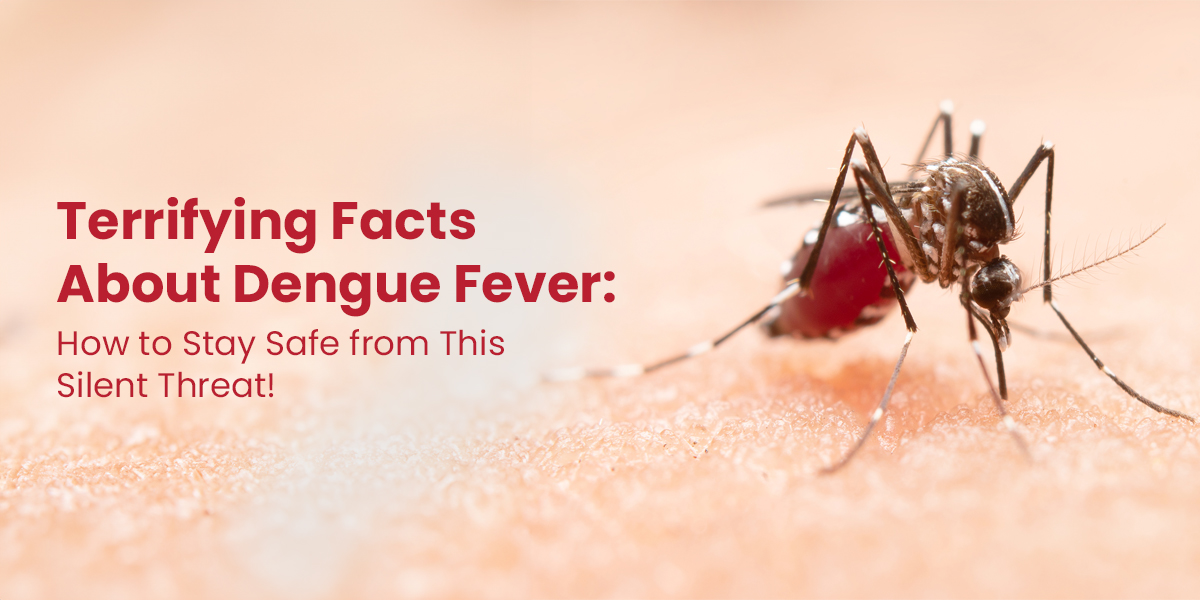Dengue Fever: Causes, Symptoms, Prevention & Treatment

Dengue fever is a mosquito-borne viral infection that affects millions of people each year, particularly in tropical and subtropical regions. Often referred to as “breakbone fever” due to the severe muscle and joint pain it causes, dengue can range from mild illness to life-threatening complications. With no specific cure, awareness and early action are key to managing the disease effectively.
What is Dengue Fever?
Dengue fever is caused by the dengue virus (DENV), which is transmitted to humans through the bite of an infected Aedes aegypti mosquito. These mosquitoes are most active during early morning and late afternoon. Once infected, a person cannot transmit dengue directly to another person, but the virus can be passed on when mosquitoes bite an infected individual and then bite someone else.
There are four types of dengue viruses (DENV-1 to DENV-4). Infection with one type provides lifelong immunity to that type, but not to the others. This is why a person can be infected with dengue more than once in their lifetime.
Causes of Dengue Fever
Dengue fever is caused by a virus transmitted by mosquito bites. The primary carrier is the female Aedes aegypti mosquito, which thrives in warm, humid climates and breeds in stagnant water.
- The virus is transmitted when an infected mosquito bites a human.
- These mosquitoes usually bite during daylight hours.
- Poor sanitation, open water storage, and urban overcrowding increase the risk of spread.
Symptoms of Dengue Fever
Symptoms of dengue usually begin 4 to 10 days after being bitten by an infected mosquito. The severity can vary from mild to severe and may last for up to 7 days.
Common Symptoms:
- High fever (up to 104°F or 40°C)
- Severe headache, especially behind the eyes
- Joint and muscle pain
- Skin rash (appears 3–4 days after fever starts)
- Fatigue and weakness
- Nausea and vomiting
- Swollen glands or mild bleeding (nose, gums)
Warning Signs of Severe Dengue:
- Severe abdominal pain
- Persistent vomiting
- Bleeding gums or nose
- Difficulty breathing
- Drop in blood pressure (shock)
Seek immediate medical attention if any warning signs appear, especially in children or the elderly.
Prevention of Dengue Fever
There is no vaccine widely available for all four strains of the dengue virus in many countries, so prevention is focused on avoiding mosquito bites and eliminating breeding grounds.
Tips to Prevent Dengue:
- Use mosquito repellents on exposed skin.
- Wear long-sleeved clothing, especially during early mornings and evenings.
- Keep windows and doors closed or use mosquito screens.
- Eliminate standing water in containers, plant pots, old tires, and buckets.
- Use mosquito nets, especially in areas without air conditioning.
- Support community efforts to control mosquito populations.
Treatment for Dengue Fever
There is currently no specific antiviral treatment for dengue. Management is focused on relieving symptoms and preventing complications.
Treatment Includes:
- Hydration: Drink plenty of fluids to prevent dehydration.
- Fever and pain relief: Use acetaminophen/paracetamol (avoid aspirin and ibuprofen as they may increase bleeding).
- Rest: Complete bed rest is recommended to aid recovery.
- In severe cases, hospitalization may be required for IV fluids, platelet monitoring, and supportive care.
Avoid self-medication and seek medical help if symptoms worsen or warning signs appear.
Who Is at Risk?
- People living in or traveling to tropical and subtropical regions.
- Individuals living in areas with poor sanitation or stagnant water.
- Those with a weakened immune system or underlying health conditions.
Children, the elderly, and individuals with secondary infections (a second bout of dengue) are more prone to severe complications.
Conclusion: Stay Aware and Protected
Dengue fever is preventable with the right precautions. Eliminating mosquito breeding sites, using protection from bites, and seeking timely medical care can significantly reduce the risk. With greater awareness, personal responsibility, and community support, we can combat the spread of dengue and protect public health during the monsoon and beyond. Choosing a trusted multi super speciality hospital for diagnosis and treatment further ensures timely and effective care.
Also Read: The Fight against Malaria

 Call-an-Ambulance
Call-an-Ambulance



